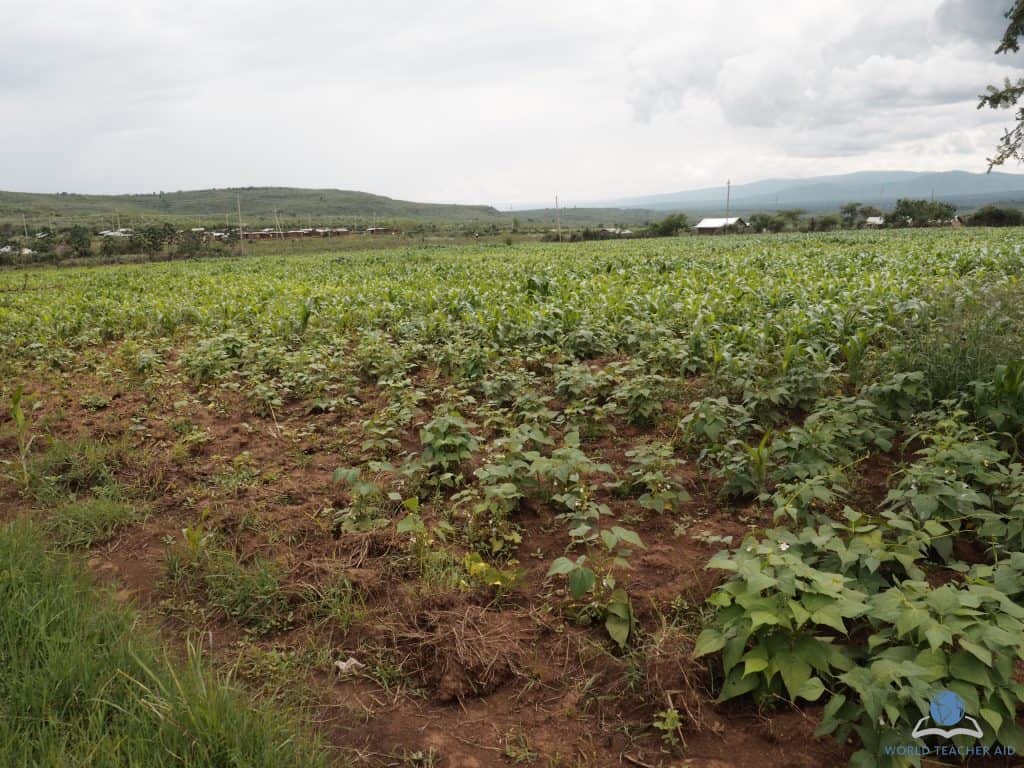It has been the goal of Village Impact programs and the ideals that are sustainable and self-sufficient, especially in the regards to school feeding programs. This is because it can be a rather expensive and arduous undertaking if not approached properly.
In our schools we have been encouraging the community and the school administration to find a way to have meals catered by the school with minimal investment from our partner, WTA. In six of our schools, we have a school farming program with the aim of providing enough crops for school feeding programs. In Bright Hope high school, the school feeding program has been a huge success.
The farming program started last year when the school was finally fenced through a government grant. We encouraged the school to use the little resources they got from the government for school development and maintenance to start a farm within the school. They converted and prepared three acres of school land to farmland. The school then plated maize/corn and beans, which are the staple grains in most Kenyan households among other vegetables and crops.
In Lemolo community, it is dry for most of the year except for the rainy season from mid-March to June every year. The crops are planted during this rainy season with beans harvested in three months and maize/corn ready in six months.
After the 2017 growing season, the school harvested 29 bags of maize/corn and a few bags of beans from the farm. The school then sold off 9 bags of maize/corn to reinvest the money back into the farm for the current planting season. The remaining bags of maize are enough to feed the hundred-plus students learning at the school for the whole year before the new crops are harvested. This means that the parents don’t have to pay the fee for providing the school lunch, hence there is a reduced burden to the parents and all the kids, no matter their background, get a hot lunch. There is also a reliable and transparent source of food for the school.
The school principal, Mrs. Jane Mwangi, is delighted with this new prospect because it means she has an easier time running the school. This has encouraged us also because it is possible to maintain such a program without any investment from our end. Even the neighboring school (Sinendet Primary School) has decided to emulate this program and is currently growing crops in their own school land beside the school playground.
In the next few years, we want to encourage and implement such well-thought-out programs that are easily replicable and inexpensive to implement. We are keeping an eye on how all our schools implement school farming programs and we can facilitate sharing of the best practices and knowledge among all of them.


